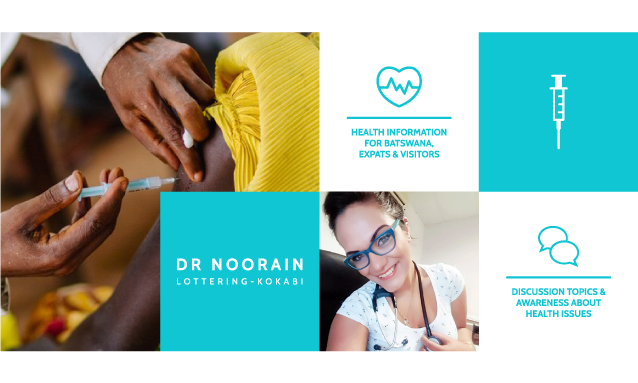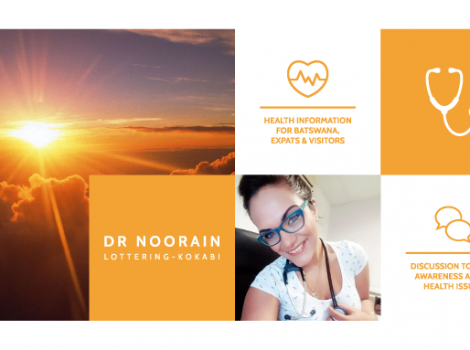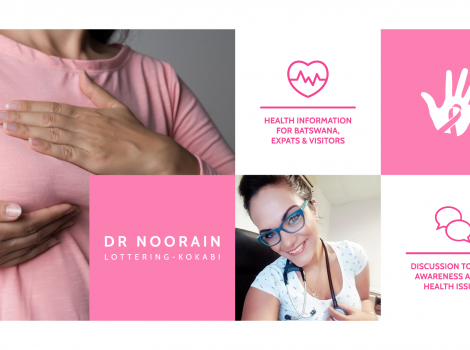
In the past few years, we have seen vaccinations become quite a heated topic of debate across the world, with some people arguing against vaccinations and actually withholding their children from getting vaccines. This has caused a major health alarm globally, hence this article aims to equip you, Batswana with all the vital information you need to know in order to understand the importance of vaccines.
Firstly, we need to understand the difference between a vaccine, vaccination and immunisation.
A vaccine is an agent that is similar to the respective microorganisms that cause diseases such a bacteria or virus. It is usually made of a killed or weakened form of the microorganism. The vaccine stimulates your body’s army aka immune system to recognise that microorganism as a threat and therefore the body destroys it. That way your body is able to recognise and destroy any future microorganisms resembling that agent. That, in essence, is how your body prevents disease.
This process of recognition and destruction refers to immunisation. While the term vaccination refers to the administration of the vaccine into your body.
Most vaccinations have been placed into schedules for different regions of the world based on the Center for Disease Control and Prevention (CDC) recommendations. These schedules are for the first year of a child’s life with vaccines boosters as the child gets older. The reason behind the schedules in the first year of life is because research reveals that it is during this crucial year that children are most susceptible to disease with fatal consequences.
However, there are other vaccines that are scheduled for later in life such as Cervarix, which helps in preventing the development of cervical cancer. It is of utmost importance that these schedules are followed and vaccination records kept.
In light of the “Anti-Vaxer” argument that vaccines “cause autism”, we need to dispel that myth by actually looking at the side effects of vaccines. First of all, vaccinations are safe! All vaccines have been studied extensively making sure that they are POTENT, PURE and STERILE. Vaccines are further approved by both the CDC and FDA and still further monitored throughout their use.
Vaccines do not cause autism; there is absolutely no medical evidence or research that can prove this theory. We need to remember that anything that we put in our bodies – from food to medication – all have side effects, whether minor or major.
In the case of vaccines, these are usually minor such a mild fever, slight swelling at the site, etc. and in some rare cases, there may be a slightly more concerning reaction such as a rash, allergic reaction etc. But health providers administering the vaccines are equipped and know how to manage same. Remember to always discuss side effects with your health care provider, find out how they are managed and what warrants a serious reaction.
Some people wonder whether vaccines are really effective, if it is just a medical ploy or hype. According to various leading experts in the pediatric and public health field, vaccines can actually be described as “one of the top 10 public health achievements of all time”.
Vaccines have successfully and completely eradicated smallpox and helped a vast number of other diseases’ statistics to rapidly fall. However, some diseases are not eradicated hence why we still need to keep vaccinating our children. With that said, it is also imperative to understand the concept of “herd immunity”. The belief held by some people that diseases can still be eliminated if most other children are vaccinated and therefore their child doesn’t require vaccination. While this concept is true, it is not safe due to travelling and exposure to certain areas of the world where vaccination coverage is not high. So it’s better to be safe than sorry; do not rely solely on your herd and instead, choose to vaccinate your child!
As you browse your social media or listen to the news, you’re highly likely to have come across alarming headlines claiming that diseases like measles are making a scary reappearance. Unfortunately, these claims are due to the advent of the “anti-vaxers” who refuse to vaccinate their children. There’s the need to understand that as vaccination rates drop, the most contagious diseases like measles and mumps will be the first to rear their ugly head and fast.
The declining rate of vaccination is associated with people’s fear of vaccinations and autism. The truth of the matter is when you delay or withhold vaccination for your child, you are not doing them a favour in decreasing their chances of developing autism. In fact, you are giving them a first class ticket to contract diseases that could kill them.
With that said, I urge all YourBotswana readers to make sure their children are fully vaccinated and if anyone has any questions with regards to vaccines to sit and discuss them with their health care provider. Remember, it is your right to understand your healthcare. Let us all do our part in increasing vaccination rates and eradicating diseases, for it is truly heartbreaking that in this day and age when we have preventative strategies in place, we have children dying from these diseases. Please don’t hesitate, vaccinate!
By YourBotswana writer:
Dr. Noorain Lottering-Kokabi, BMSc, MBBS (UWI MONA)
Born in May 1989, Dr Noorain hails from Gaborone Botswana. She completed her Pre-Med at the University of Botswana and went on to attain her BMSc and MBBS degrees at The University of The West Indies in Kingston Jamaica.
Having practised medicine in both the Caribbean and Botswana, she has been exposed to an array of conditions and ailments that have in turn widened her scope of expertise. She is also involved in multiple philanthropic projects that aim to equip youths with relevant life skills and tools they need throughout their lives.
A young, diligent, enthusiastic professional with a formidable hunger to continuously seek further knowledge, both in alternative and modern medicine, Dr. Noorain aims to better the healthcare in the communities she serves.
She currently works in community health providing first line care for the community as a whole. Her current position has enabled her to manage both common and complex cases. These cases range from the common cold/flu, bites to mental health, uncontrolled diabetes, hypertension, tuberculosis and HIV (along with the associated complications). Having worked in the Caribbean, Dr. Noorain is very familiar with the treatment of tropical diseases and severe symptoms that may arise from such diseases.
Dr. Noorain provides quality outpatient care ensuring that her patients are fully educated on their respective illness. After all a patient that is well educated on their illness is more likely to comply with medical protocols and prevention strategies, hence reducing potential mortality and morbidity statistics, which reflects a healthy and happier Botswana.
Dr Noorain is a young, career driven, passionate, culturally and medically diverse professional. She is excited about her collaboration with YourBotswana, hoping to use the platform to educate citizens and visitors alike on current health issues in Botswana.



